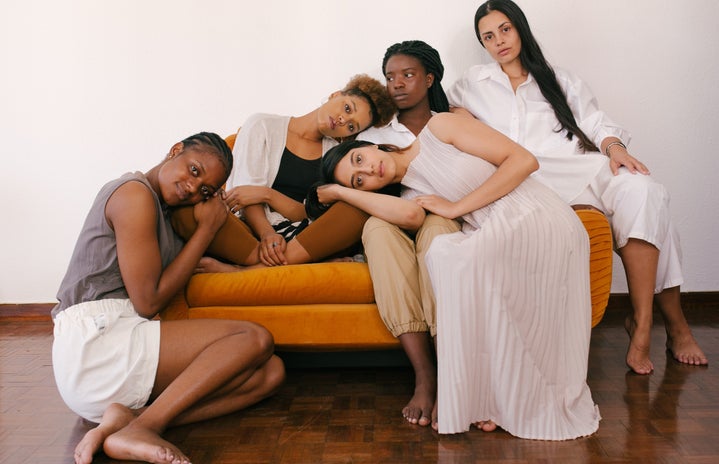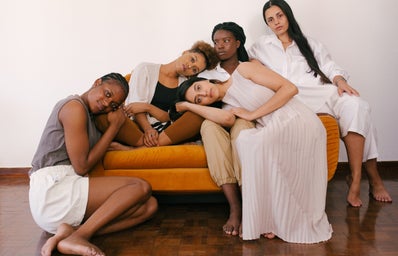When one Googles the “definition of female”, one of the first results you’re presented with is of, relating to, or being the sex that typically has the capacity to bear young or produce eggs. While the inclusion of the word “typically” makes this a bit more palatable, many would agree with me in saying that this definition is a bit too scientific for the real world. Social movements, feminist scholars, and the pals at your favorite coffee shop alike have been pondering the same question for some time now: what does being a woman mean in our modern world?
Fifty years ago, the commonly accepted definition of what a woman is in America was very narrow and constrictive. A cisgender mother in a heterosexual relationship was the norm at this point, and any relationships that fell outside of this were brought into question. There is a myriad of examples throughout history of how women in particular have been confined to what society as a whole expects of them and therefore were defined by these things. However, there has been a growing movement within both the feminist movement and the LGBTQ+ community to break down these ideas to redefine what being a woman is, and who gets to be included.
In the past fifty years, women have entered into the workforce gradually and subsequently have changed their interactions with the world. This opened up a space for the roles and definitions of women as a whole to be popularly problematized in a way they weren’t before, leading to an opening of a dialogue surrounding who a woman can be. For example, in 1972, Katharine Graham became the CEO of the Washington Post, making her the first female CEO of a Fortune 500 company. Moves such as this dispelled the idea that women cannot be leaders and paved the way for upward mobility for women everywhere. Members of the LGBTQ+ community who identify as transgender and non-binary women, such as Laverne Cox and Marsha P. Johnson, have come forward and advocated for the visibility and legitimation of people who exist in spaces between genders, and the inclusion of these people in the conversations on femininity and the female experience.
There is so much riding on this inclusion for people around the world, not necessarily just in the United States. In areas such as Malawi, women are banding together to become economically independent and self-sufficient outside of the patriarchal systems of dependency previously set up for them. This doesn’t even cover the intersectionality of the experiences of non-cisgender women of color. For far too long transgender and non-binary women of color have existed too long on the margins of feminist conversations and deserve a place in the center of the discussion. Their lived experiences and thoughts on the empowerment of women are critical in making well-rounded choices to further the liberation movement, and therefore need to be uplifted to enhance the conversation. In doing this, we as a collective are ensuring a future of inclusivity and empowerment for all those who come after us, no matter where they are situated on the gender spectrum. In all aspects, we must leave the world better than we found it, and the issue of women and gender liberation is no exception.




